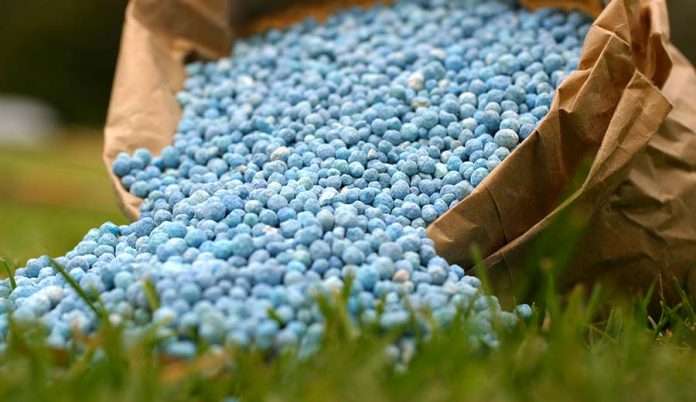Dr. Charles Nyaaba, the Executive Director, Peasant Farmers Association of Ghana has explained that the Russia-Ukraine geopolitics has minimal impact on the fertilizer industry.
“Even though global geopolitics is affecting fertilizer, its impact is minimal,” he told the host of Sunrise Morning Show on 3 FM on Tuesday.
He added that the distributors of fertilizer have not been paid since 2021 and this has made it difficult for smaller companies to import fertilizers because of locked up capital.
“From 2021 no single distributor has been paid making it difficult for smaller companies to import fertilizer. Even those supplying to Planting for Food and Jobs have not been paid.’’
The Chamber of Agriculture had earlier complained that prices of Fertilizer have gone up by 120 % within one year. A bag of Fertilizer now costs as much as 450 cedis per 50 kg depending on one’s location in the country. The 15% government subsidy amounts to just 52 cedis which only cushions transportation cost. The cost of ploughing has shot up due to increase in fuel prices whereas labour cost has doubled and even farmers are struggling to get labour.
“We agree post COVID and Russia Ukraine fight has affected prices. Even before the Ukraine problem, the government had already reduced subsidies on fertilizer. Government could have done better in solving the issue if it had been proactive. Dr. Nyaaba further stated’
Currently over 200 members of the Peasant Farmers Association are in a meeting in Kumasi to look at how to improve their capacity to enhance food production in Ghana.
The Chief Executive Officer of the Ghana Cocoa Board (COCOBOD), Mr. Joseph Boahen Aidoo, has suggested to cocoa farmers in Ghana to resort to the use of poultry manure for farming due to the shortage of inorganic fertilizers across the world.
He said “There is no way those materials will come. So we must all brace ourselves that come next year, it won’t be there, or even if it is going to be there maybe from other countries but it will be very limited.
“We as a country will then have to look for alternatives. We have been telling the farmers that when you talk about fertilizer it is not just the inorganic fertilizer, even the organic fertilizer, poultry manure is the best, this is the time. Now we cannot get the fertilizer, let alone to make it free.”
By Samuel Afriyie Owusu|3news.com|Ghana


